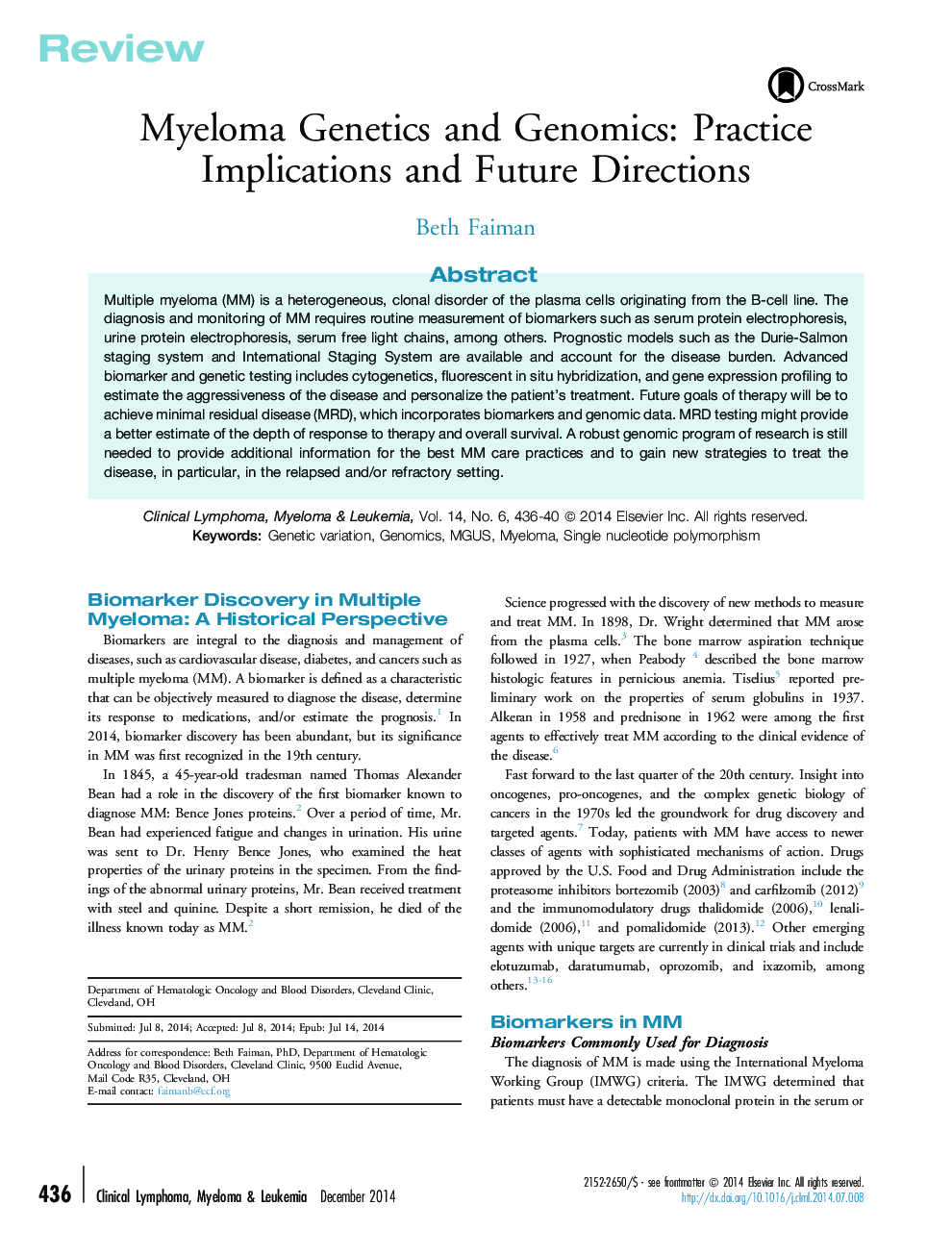| Article ID | Journal | Published Year | Pages | File Type |
|---|---|---|---|---|
| 2754909 | Clinical Lymphoma Myeloma and Leukemia | 2014 | 5 Pages |
Multiple myeloma (MM) is a heterogeneous, clonal disorder of the plasma cells originating from the B-cell line. The diagnosis and monitoring of MM requires routine measurement of biomarkers such as serum protein electrophoresis, urine protein electrophoresis, serum free light chains, among others. Prognostic models such as the Durie-Salmon staging system and International Staging System are available and account for the disease burden. Advanced biomarker and genetic testing includes cytogenetics, fluorescent in situ hybridization, and gene expression profiling to estimate the aggressiveness of the disease and personalize the patient's treatment. Future goals of therapy will be to achieve minimal residual disease (MRD), which incorporates biomarkers and genomic data. MRD testing might provide a better estimate of the depth of response to therapy and overall survival. A robust genomic program of research is still needed to provide additional information for the best MM care practices and to gain new strategies to treat the disease, in particular, in the relapsed and/or refractory setting.
